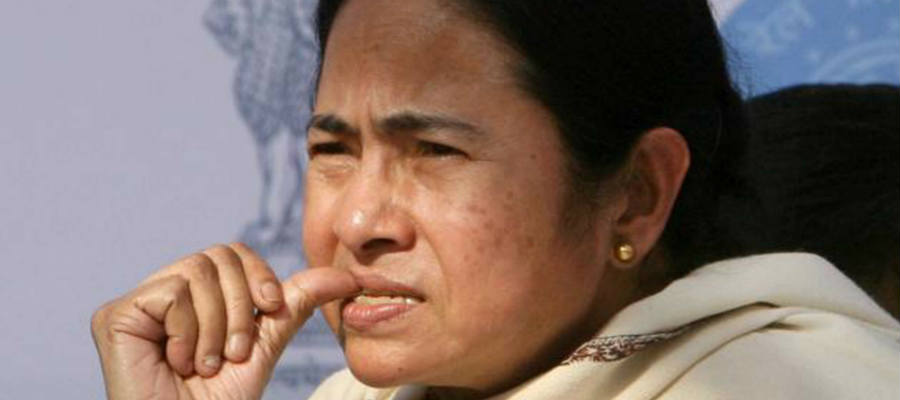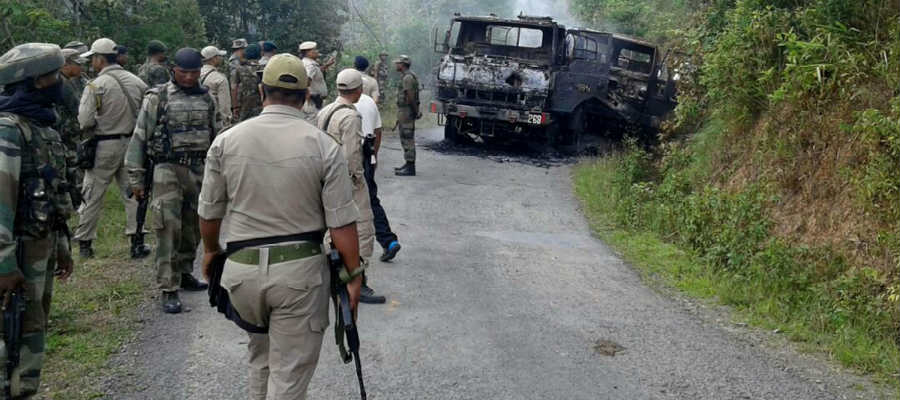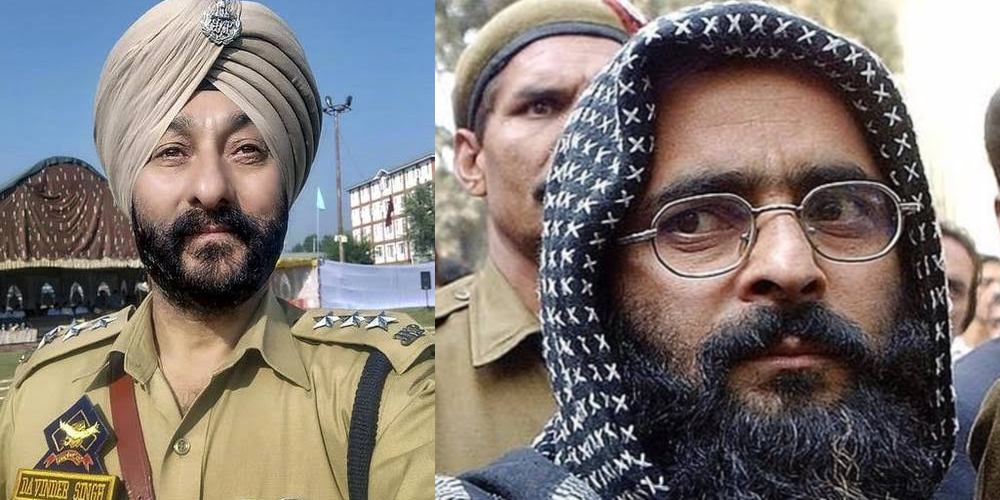BY RSN SINGH
Why has the West Bengal Chief Minister panicked after the demonetization move by the Central Government? Such desperado behaviour was exhibited a few years back by Mr Manmohan Singh in the run-up to the Indo-US nuclear deal. The West Bengal CM is also behaving incoherently in a manner that the world has come to an end. It does betrays the dying pressure being exerted by sinister quarters. A beleaguered CM is trying to clutch on any straw.
In other states, too political players or political parties are indeed bitter over the demonetization move because of their political and dynastic financial misfortune that has befallen, but in the case of West Bengal the reasons are intriguing and have seedy internal as well as external dimensions.
The state of West Bengal, particularly its capital, Kolkata, has traditionally served as the financial hub of India’s East and Northeast. Kolkata also is the financial destination and get-away for all the illegal money that flows from Bangladesh into India. It may be mentioned that West Bengal has been under deep financial crisis over several decades now. The government, after meeting its essential expenditures and loan liabilities is left with very little or no money for development projects. In fact, West Bengal is one of the worst revenue deficit states in India. The state may be poor but its politicians and the people who drive politics are rich. So where does this money come from? What are the economic drivers of politics in the state?
Kolkata is the financial terminus of most of the insurgent groups industry, the Maoists industry, the jihadi industry (straddles West Bengal – Bangladesh), the cattle smuggling industry from India to Bangladesh, the illegal mining industry and the fake currency industry. It is a well-known fact that insurgent groups in the Northeast have fine -tuned parallel economy arrangements. The Chief Ministers of some of these states are obliged for reasons of survival to part with a significant proportion of the official budget in favour of the insurgent groups. A weak sense of nationalism further fuels this parallel economy. Many analysts are of the view that in measure of corrupt proclivities, most politicians and officials in the northeast are way ahead of competitors in the Indian hinterland. The insurgent leaders have vested interests in enriching themselves and keeping the people and the region in a state of poverty.
Kolkata serves as a major hub for cycling and recycling the extortion money raised by insurgent group in northeast. It runs into several thousand crores. Historically, the mining industry in the eastern part of India has strong financial umbilical with Kolkata. Over the years, one of the biggest generators of black money has been the mining sector of India. The mining industry in Orissa, Jharkhand, Chhattisgarh and Assam has been feeding into the black money industry of West Bengal. In the last two decades, the Maoists have emerged as one of the leading players in illegal mining industry. There have been several inputs to suggest that iron ore, illegally mined by the Maoists, was being shipped to China through the Haldia port in West Bengal. The shipping industry operating from West Bengal has been one of the major beneficiaries of dirty money.
Cattle smuggling into Bangladesh is a massive enterprise. Between 4000 and 5000 cattle are smuggled everyday. The scale and magnitude is as per one estimate $ 5 billion annually. In fact, Bangladeshis has much of its food security predicated on this enterprise. This enterprise generates windfall profits and parallel economy, which in turn lubricates politicians and politics in the state. Another smuggling enterprise is that of phensedyl cough syrup from India to Bangladesh. It is used as a substitute for alcohol in the country. Lacs of bottles of phensedyl are smuggled every month.
The jihadi industry in the districts adjoining Bangladesh has acquired formidable proportions. Every pan-Islamic jihadi group has its presence today in the state. This includes the Al Qaeda in Indian Subcontinent (AQIS), variants of the Islamic State (IS), Jamait-ul-Mujahideen Bangladesh (JMB) and the mother of all jihadi groups the Jamaat-e-Islami (JeI). The JeI of Bangladesh, after several of its top leaders were hanged by the current Hasina regime including Abdul Quadir Mollah (butcher of Mirpur) and Moitur Rehman Nizami (former minister) for war crimes in 1971, has literally bought bases in West Bengal. Significantly the National Assembly in Pakistan condemned the hangings. The JeI in Bangladesh had before the crackdown acquired the status of ‘state within state’ and ‘economy within economy.’ According to the known Bangladeshi economist the net annual profits of JeI from various ventures is 278 million.
A majority of these fundamentalist/jihadi groups have found safe heavens in West Bengal after being uprooted by Sheikh Hasina in Bangladesh. The patronage provided by the West Bengal government is not without a financial and political price in terms of vote-bank. These elements have become the financial and physical muscle of one particular political party. The violence that they are capable of unleashing was evident in Nandigram. The border districts of West Bengal and the madrasas therein have become nursery of jihadis. The cost of the expansion of the network of madrasas in the state, the recruitment and indoctrination of jihadis, is borne by countries like Saudi Arabia and agencies like ISI of Pakistan. The jihadi money finally gets amalgamated with the politics in the state.
Districts like Burdwan and Malda have been the major centres of trade in counterfeit Indian currency. Pakistan’s ISI has been using its High Commission in Bangladesh for pushing counterfeit currency into West Bengal. The Bangladesh government deported one such diplomatic official into 2014 for his role into smuggling of counterfeit currency in India. Report suggest that hundred Rs. 1000 Indian notes of the value of Rs.one lac was being sold in Malda for Rs. 20,000 and it went up to Rs. 40,000 once Shaikh Hasina crack-down. The counterfeit currency industry was a major earner for very many politicians and jihadis based in West Bengal.
In parts of Malda district, specially Gopalganj, locals are engaged in large scale opium cultivation. In fact the area has earned the epithet of ‘mini Afghanistan.’ As per police sources the drug money thus generated is used for buying sophisticated weapons through sources in Bangladesh and running of unregistered madrasas.
West Bengal thus has acquired the status of a huge regional and sub-national parallel economy. The consequences of the attack on this parallel economy are therefore on the entire region. It is definitely a severe blow to insurgents, terrorists, smugglers and politicians.
The irony is that there is a prime minister in Bangladesh, whose decisions and actions in effect has contributed immensely in improving India’s security environment, but without any complementary support or effort by West Bengal. We have a dispensation in West Bengal, acting frantic to neutralize every positive effort by Sheikh Hasina. Is it at the behest of external powers? It is well known that the ISI had been using the territory of Bangladesh to foment insurgency and terrorism in India’s eastern regions. Hein G Kiessling in his book ‘The ISI of Pakistan’ says that the involvement of ISI in India’s northeast had begun in 1957. Naga rebels were provided safe havens in Chittagong Hill Tracts (CHT). The Mizo National Front (MNF) also found shelter in East Pakistan. Even after creation of Bangladesh Non-Awami League governments continued to facilitate such anti-India activities. Later, apart from other insurgent groups the biggest beneficiary of Bangladesh patronage was the ULFA. It is only when the present dispensation under Sheikh Hasina came to power that the ISI was compelled to abandon its bases and operations against India.
Has ISI found a new base in West Bengal?.
(RSN Singh is a former military intelligence officer who later served in the Research & Analysis Wing. The author of two books: Asian Strategic and Military Perspective and Military Factor in Pakistan, he is also a Guest Blogger with Canary Trap. The opinions expressed by the author and those providing comments are theirs alone, and do not reflect the opinions of Canary Trap or any employee thereof)



